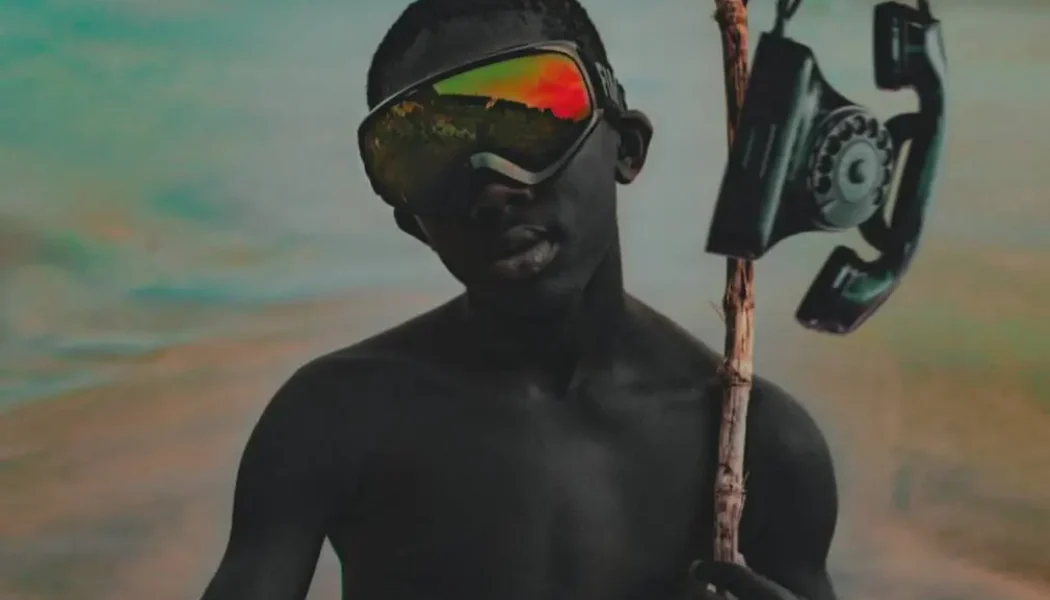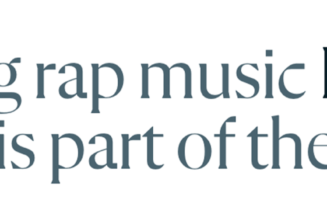
Off the Grid
ONIPA
Following their critically acclaimed We No Be Machine album released in 2020 and the Tapes of Utopia mixtape (2021), Afrofuturist Ghanaian-British collective ONIPA returns with Off The Grid. Attentive listeners will not be disappointed by this second full-length album, which brings together the ingredients of the band’s success: powerful groove, Afrobeat and highlife formations, and lead vocalist K.O.G’s irresistible melodies. However, on many tracks, the collective takes a different direction than usual, diving into rougher and more electronic territories like on “Danger” and “Fine Tho”. The album was conceptualized as “a journey that joins the origin story of dance rhythms from Africa to electronic dance music of today’s clubs and festivals”. Collaborators include David Walters, Dele Sosimi, Moonchild Sanelly and Theon Cross.
Listen here.
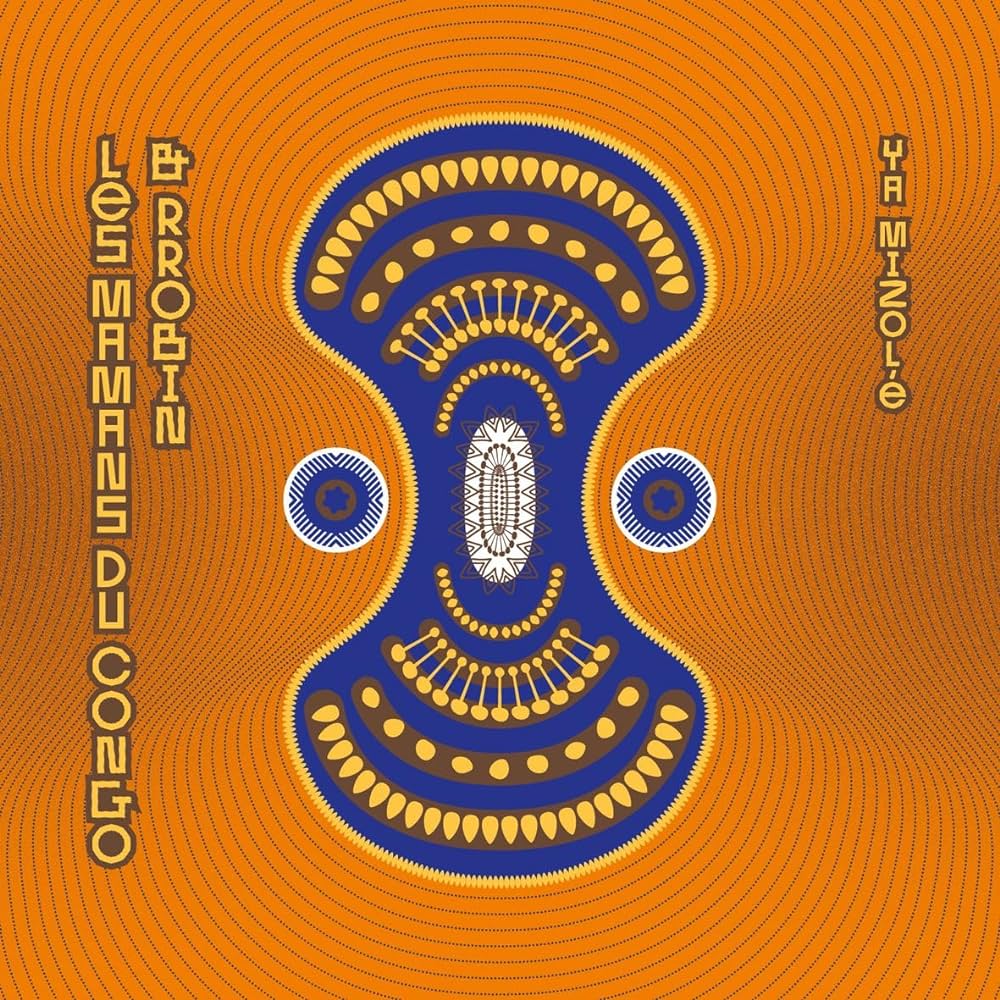
Ya Mizolé
Les Mamans du Congo & Rrobin
Les Mamans du Congo came into being in 2018 in Brazzaville when the Jarring Effects label, the Institut Français du Congo and the Coopérative de Mai organised an encounter between five female congolese vocalists and French producer Rrobin, with the project of fusing dance music with ancestral Kongo lullabies sung in Lari. Following a first self-titled album in 2020, the group formed again for Ya Mizolé. Cleverly fusing Rrobin’s experimental, hip-hop and house influenced beats with the Mamans’ lyrics, the different songs explore Congolese heritage and tales. “Mpemba”, for example, speaks about Kongo kingdom values and reminds all of us to remember where we come from. Far from being conservative, the album has an overall Afro-futurist feel, carried by electronized, percussive rhythms. “Sala Sala” is the editorial team’s favorite.
Listen here.
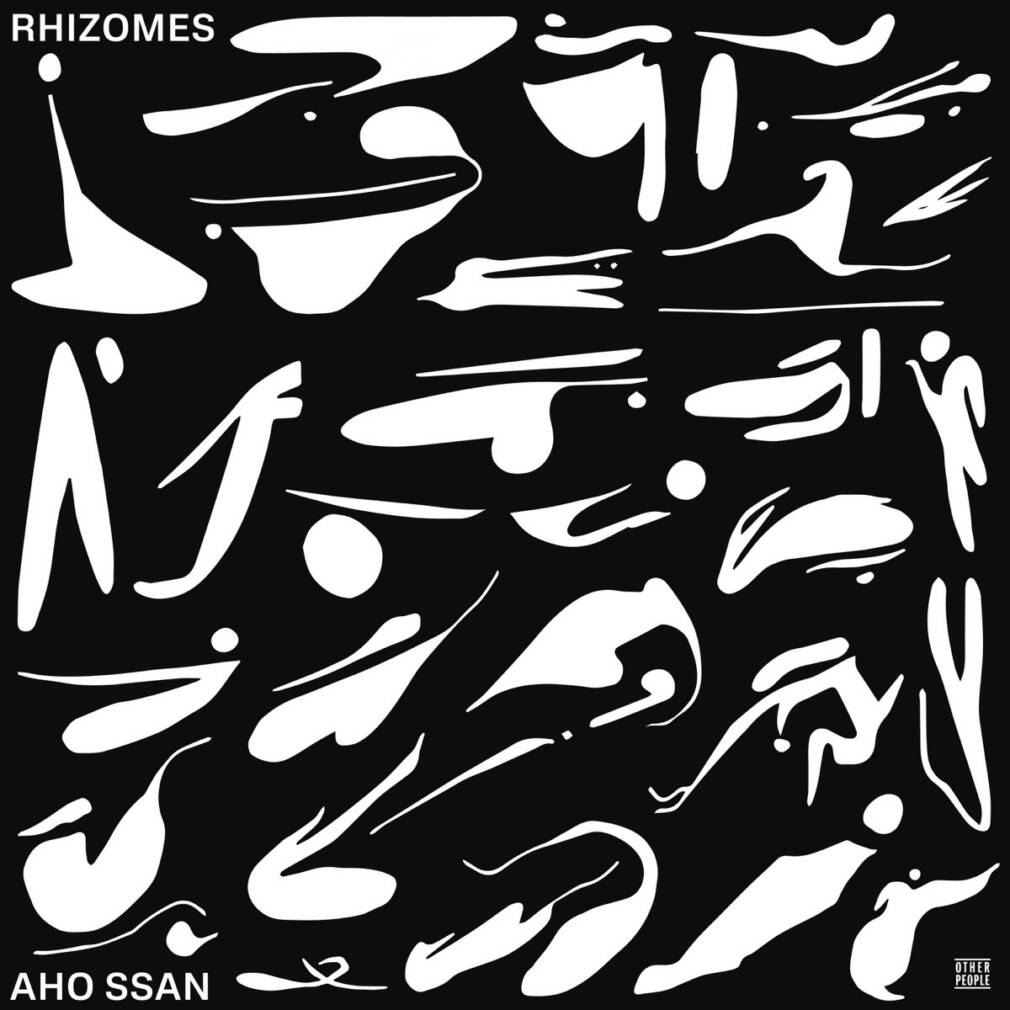
Rhizomes
Aho Ssan
Aho Ssan is the artist name of Paris based composer, producer and instrument creator Niamké Désiré. Commissioned by the Other People label, Donaufestival and Paris-based electro-acoustic music studio INA GRM, the artist’s new album Rhizomes draws inspiration from an idea developed by philosopher Gilles Deleuze and psychoanalyst Felix Guatarri: “the idea of an ever evolving structural model, constantly in motion and spreading out in all directions at once.” This is the way Rhizomes feels: radically electronic, rough, constantly changing, polyrhythmic and distorted, the album was actually conceived as a multimedia project and questions the influence of sound materials on creation. A unique sonic exploration, the project will not leave you indifferent.
Listen here.

95 MINDJERES
Nídia
Over the last ten years, Principe Records has painted a dynamic and creative portrait of the new wave of Luso-African Portugal-based dance music. Nídia, who already released 4 albums with the label, is a mainstay of this scene. On 95 MINDJERES, her unique take on batida pays tribute to the decisive role of women freedom fighters in PAIGC’s struggle for the independence of Guinea-Bissau from Portuguese colonial domination during the 1960s and 1970s, notably through the military training and political awareness of a group of 95 women. This homage is developed in the form of rapid tracks, each one experimenting with groove, interweaving percussion sequences and minimalist melodies. Another captivating proof of how much the dancefloor can be a political space.
Listen here.

Digital Indigenous 05 : Katula
Katawa Singers
Poland-based record label 1000Hz has produced many albums documenting the indigenous and modern music of East Africa. The Digital Indigenous series presents “local producers who utilize rudimentary digital tools to create thrilling mixes of electronic and traditional music – either pop or avant-garde oriented”. Katula, the fifth project of this work, showcases Malawian Katawa singers’ early years work. Founded by Auden Nthala and two of his friends, soon joined by others, initially to raise funds to build a church in their home town of Mzuzu, the group continued to exist and started experimenting with drum machines and keyboard synthesizers. “We learned it from scratch, by trial and error,” one band member explains. “We were also the first in the region to work this way”. A beautiful harmonization of gospel voices, local rhythms (malipenga, ingoma, kamchoma) and complex electronic arrangements (created by simple technical equipment), Katula is the band’s second full-length project.
Écoutez here.
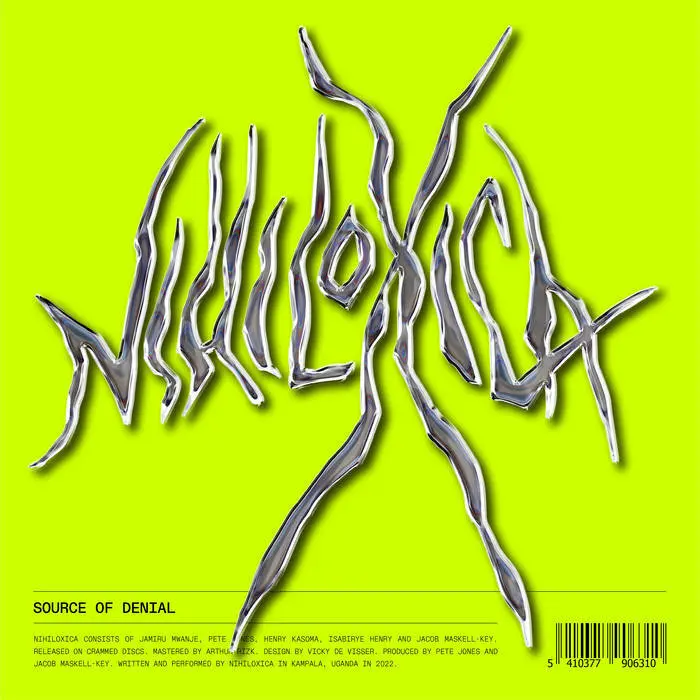
Source of Denial
Nihiloxica
The result of a successful addition of Ugandan percussionists from the Nilotika Cultural Ensemble with two young producers from Leeds – fans of Refused and Aphex Twin -, polyrhythmic group Nihiloxica has put Kampala on the map of the most energetic African cities. On Source of Denial, their second LP, the group further blurs the lines between techno and tradition, fusing Bugandan ngoma drums with heavy club sounds to impose an apocalyptic and dystopian atmosphere. This is deliberate. The album is a reaction to the recent hostile immigration and freedom of movement policies implemented in the UK. “We wanted to create the sense of being in the endless, bureaucratic hell-hole of attempting to travel to a foreign country that deems itself superior to where you’re from. […] The arrogance of it is unbearable. […] Despite some other serious humanitarian shortcomings, Uganda accepts some of the highest numbers of refugees in the world. Meanwhile the UK is trying to send them away to Rwanda. That says it all.” – Nihiloxica
Listen here.
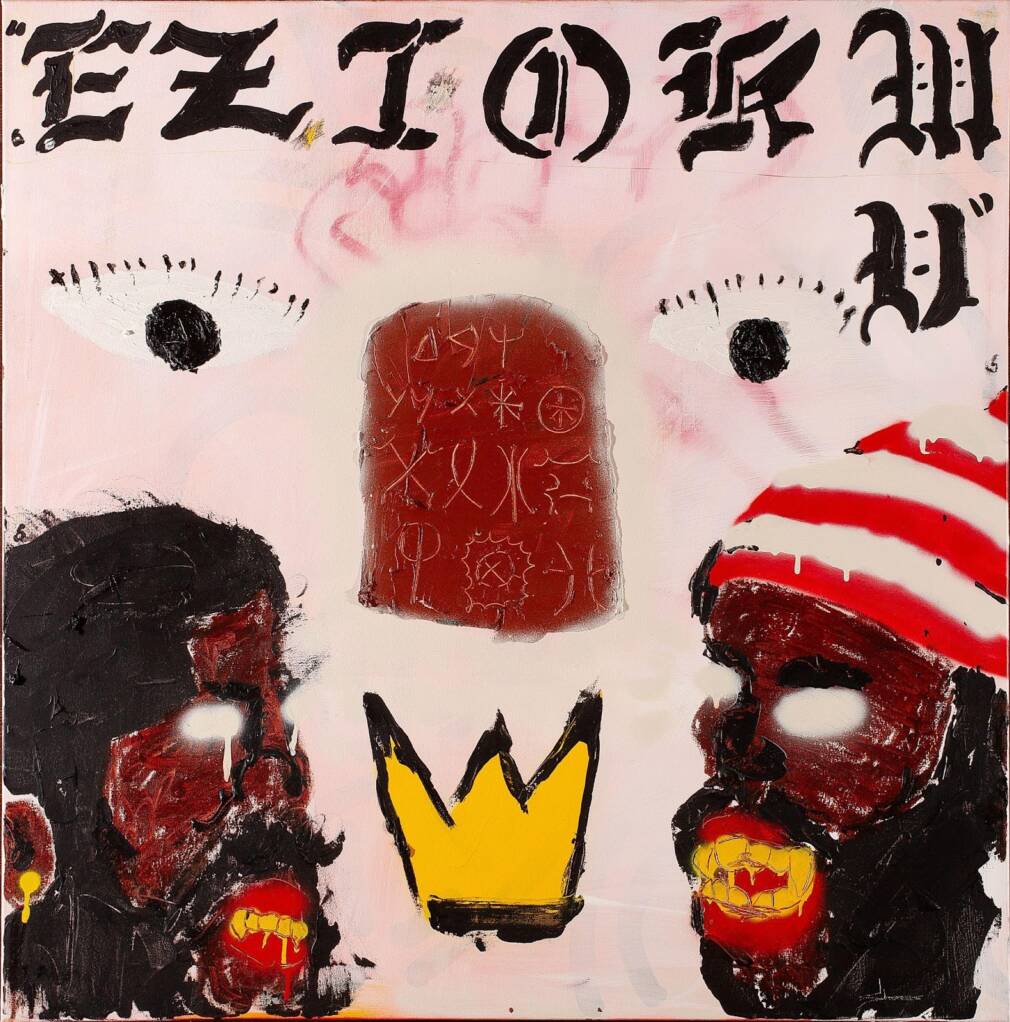
EZIOKWU
ODUMODUBLVCK
In Nigeria, the rookie of the year award probably goes to Lagos native rapper ODUMODUBLVCK. Having raised the temperature all year long with now certified hits such as “Declan Rice”, “Picanto” or “Dog Eat Dog”, the artist has built his fanbase on uncompromising Pidgin rap joints and clever lyrics, accompanied by strong Nigerian Igbo aesthetics. EZIOKWU, translated as “truth”, is a true hip-hop tour de force, in which the rapper evokes his recent success and complete change of status. Featuring an impressive cast of the very best West African hip-hop, afrobeats and alternative music artists (PsychoYP, Teezee, Bella Shmurda, Fireboy DML, Amaarae, Cruel Santino…), the mixtape confirms that despite the explosion of afropop, Nigerian rap still has something to say.
Listen here.
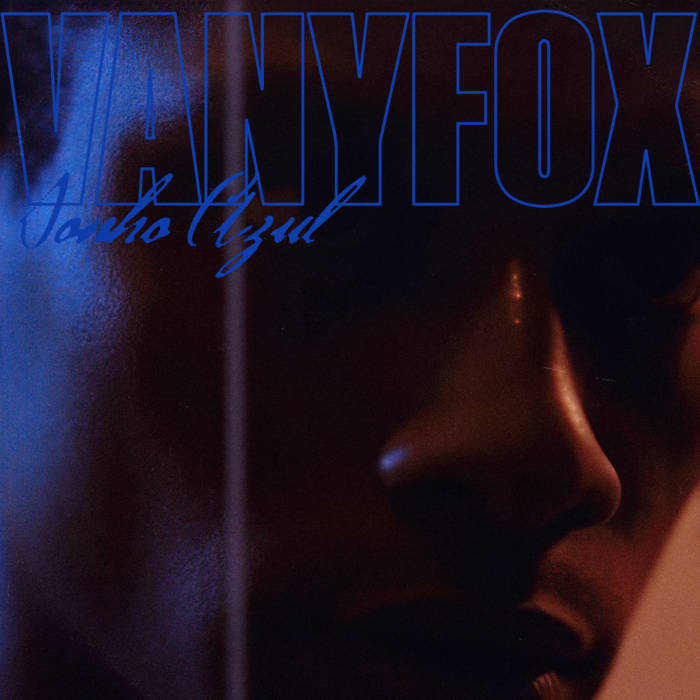
Sonho Azul
Vanyfox
If Vanyfox was still mostly an underground name three years ago, his productions are now unmissable in any Afro-electronic oriented party. The Portuguese-Angolan artist is at the forefront of the Lisbon batida movement, and seems to always be ahead of the rest in terms of sounds, rhythms and energy. Sonho Azul (“Blue Dream”), his new EP, takes us on a feverish and dreamy getaway, dark and with a sense of urgency, yet definitely party-oriented. Released through Canadian label and event collective Moonshine, known for their impeccable taste in terms of continental and diasporic new age electronic music, the project creates a link between lusophone African, North America and more and more, Western Europe. To be listened to when driving at night with the window open, or on the dancefloor of an underground club.
Listen here.

Emeka Must Shine
Blaqbonez
For years, Blaqbonez has accustomed his listeners to troll verses, irony-charged songs and a constant provocative attitude in his appearances. His new album Emeka Must Shine still finds itself in this description: the single “Like Ice Spice”, which had an immediate success in Nigeria, is a perfect example of the rapper’s wit. However, this new project seems to reveal something deeper and more profound about the artist’s character, perhaps from the art cover, simpler than usual, or from the artist’s recent statements: “I aimed to create something that not only celebrates my personal journey but also showcases the immense talent and potential within Nigerian hip-hop. This album is a testament to my capabilities and the resilience and creativity of our music industry”. Overall, Blaqbonez leans in a more laid back and comfortable direction, swapping fiery trap vibes for groovy and calm afrobeats-oriented sounds. “Bad Till Eternity”, featuring Zlatan, pays tribute to MohBad, who recently passed away.
Listen here.
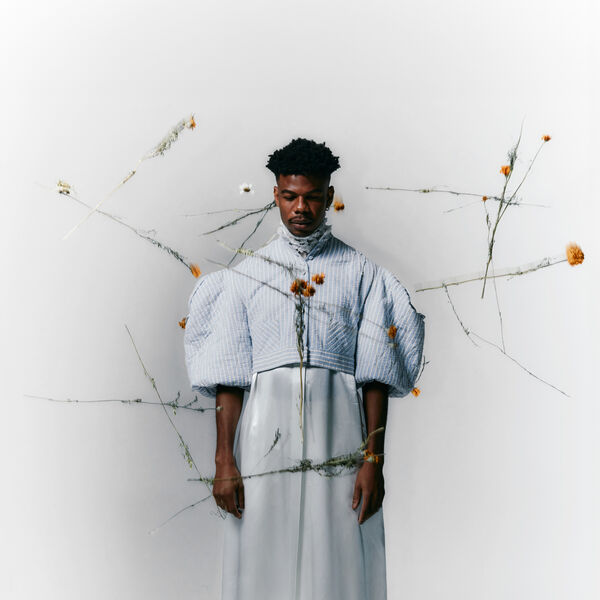
To Say Goodbye
Poté
“This is a project based around transience”, Poté writes about his new album. “The recognition that nothing lasts forever. So for that I wanted to write a project that represented me, as if it were to be my last. A project which felt fearless in its honesty about love, loss, fear and joy. A project which didn’t try to hide behind layers, one of genuine vulnerability and openness.” Born in St Lucia and later moving to the UK, Poté started his career predominantly in club music before switching to songwriting. To Say Goodbye fuses all these influences: while the six tracks all have a folk feel in the lyrics and melodies, the choruses and verses are always delicately accompanied by precise and multilayered electronic beats. From the electrifying club vibes of “Why Don’t You Call” to the more new wave r&b infused “Where Water Meets The Sky”, the EP is a touching testament of the artist’s instant feelings.
Listen ici.
